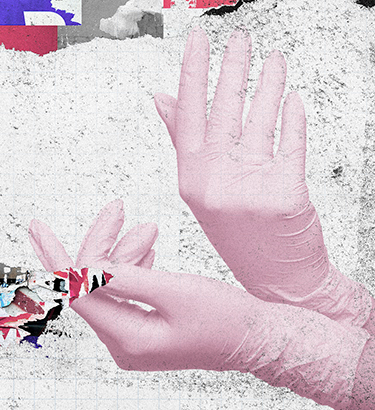Gaither: I'm a maternal-fetal medicine specialist, and what that means is I have done extra training to take care of women that have complicated pregnancies. Either they have some underlying medical issue like diabetes, hypertension [high blood pressure], HIV, or surgical issue, or their baby has an anomaly of some sort. I'm trained to perform detailed obstetrical ultrasounds and genetic amniocentesis; in short, prenatal diagnosis, which I absolutely love.
What I love about being a maternal-fetal medicine specialist is the ability to focus on what and how you like to practice. For me, I'm interested in prenatal diagnosis. I love the genetic analysis aspect and I love the research. I also love teaching.
Other maternal-fetal medicine specialists might focus on other aspects, such as fetal surgery or engaging in bench research, meaning you're in the lab doing X, Y and Z with either cells or animal models, looking to see or come up with new research/novel treatments to help progress medicine. I still do clinical research and did bench research when I was in fellowship training on placental function in diabetes.











